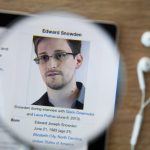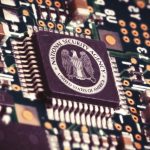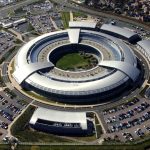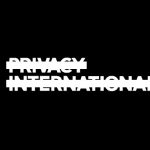Government forced to U-turn on internet spying and encryption ban plans

The UK government has performed an about-face on plans for controversial internet surveillance plans. The "snooper's charter" may have been kept at bay so far, but plans were afoot to force ISPs to retain the browsing histories of their customers. Prime Minister David Cameron had also strongly hinted at a desire to ban the use of strong encryption.
Today Home Secretary Theresa May told the BBC that security agencies such as GCHQ would not be granted the power to check web browsing histories. She also said that an encryption ban would not be implemented. Dismissed by some as little more than 'spin', the U-turn will be widely seen as the government's response to suggestions that any extension to online surveillance powers would be blocked in the House of Lords. While this is something of a climb-down for the government, it is not the end of the battle for privacy groups.
Europe wants to protect 'human rights defender' Edward Snowden from the US

Edward Snowden could have a new friend, and place of exile, in Europe. Currently in Russia, Snowden today found himself the subject of an EU vote seeking to drop any criminal charges against the former NSA contractor.
The vote passed 285 to 281 and is likely to upset the US. This is because member states are also looking to extend protection to Snowden and prevent extradition by third parties, calling him an "international human rights defender".
UK government says app developers won’t be forced to implement backdoors

The UK government is sending mixed messages about how it views privacy and security. Fears have been mounting since Prime Minister David Cameron wondered aloud "in our country, do we want to allow a means of communication between people which we cannot read?" -- his view obviously being that, no, we don’t want to allow such a thing.
Following the revelations about the spying activities of the NSA and GCHQ, public attention has been focused more than ever on privacy and encryption, Cameron having also suggested a desire to ban encryption. Today, some fears were allayed when it was announced that the government was not seeking to require software developers to build backdoors into their products. That said, the government said that companies should be able to decrypt 'targeted' data when required, and provide access to it.
Wikimedia case against NSA spying thrown out of court

A lawsuit brought against the NSA by Wikimedia and eight other plaintiffs has been dismissed by a federal judge. American Civil Liberties Union (ACLU) filed the case on behalf of the Wikimedia Foundation alleging that the NSA had engaged in mass surveillance of Wikipedia users.
Joined by the likes of Human Rights Watch and Amnesty International USA, Wikimedia complained about the NSA's upstream surveillance as revealed by Edward Snowden. The ACLU suggested that the sheer volume of traffic Wikipedia receives means that the US government's surveillance must have included spying on the activities of Wikipedia users. Judge T.S. Ellis disagreed, saying that the plaintiffs did not have plausibility -- or size -- on their side.
Tim Cook: We shouldn't have to choose between privacy and security

In a debate held on Monday, Apple’s CEO Tim Cook argued with government agencies over privacy and backdoor issues once again, stressing that a backdoor is not a good solution.
According to a Bloomberg report, he squared off with NSA Director Admiral Michael Rogers at the Wall Street Journal Digital Live technology conference in Laguna Beach, California.
Politicians panic after law change could leave them open to surveillance

The world of politics is filled with people who many would consider to be out of touch with real life. All too often politicians are treated differently, and this has certainly been the case when it comes to NSA and GCHQ surveillance of phone and internet traffic. In the UK a court has ruled that a ban on intercepting politicians' communication is not valid.
The Wilson Doctrine -- named after former prime minister Harold Wilson -- stated that "there [will] be no tapping of the telephones of Members of Parliament". This has now been ruled to have no legal force, sending politicians into a fit of panic. They are due to hold an emergency debate next week.
Hillary Clinton wants Edward Snowden to stand trial

Hero or villain? Opinion is very much divided about Edward Snowden. For Hillary Clinton there is no question -- he is a villain who broke US law and should face trial. The NSA contractor became a topic for discussion between Clinton and Bernie Sanders at last night's presidential debate, and the two candidates had slightly differing views of how he should be treated.
Snowden has said that he would be willing to serve time in jail, going as far as offering himself up to the government. He says that he has received no response -- something that would apparently be very different if Clinton succeeds in her presidential bid. While Clinton is taking a hard line, Sanders offers more leniency.
US government will not force companies to decode encrypted data... for now

The Obama administration has announced that it will not require companies to decrypt encrypted messages for law enforcement agencies. This is being heralded as a 'partial victory' by the Electronic Frontier Foundation; partial because, as reported by the Washington Post, the government "will not -- for now — call for [such] legislation".
This means that at the moment companies will not be forced to build backdoors into their products, but there is no guarantee that this won’t happen further down the line. The government wants to continue talks with the technology industry to find a solution, but leaving things in limbo for the time being will create a sense of unease on both sides of the debate.
Top court rules European-US Safe Harbor data sharing agreement invalid

The European Court of Justice has ruled that the Safe Harbor agreement that is in place between technology companies is invalid. The agreement covers the sharing of data between the EU and the US but the court said there are insufficient privacy and data protection checks in place.
European law dictates that data should only be shared with and transferred to countries that offer a comparable level of data protection to the EU. The Safe Harbor agreement has been in operation for around 15 years, but after concerns that European data could be shared with the likes of the NSA it means that companies such as Facebook, Google, and Apple could be sharing data illegally.
Snowden says GCHQ's Smurf programs can tap, hack, and control any smartphone

In an interview with BBC Panorama, Edward Snowden made further revelations about the capabilities of government agencies. Having blown the whistle on the NSA, Snowden has also shed light on the activities of the UK equivalent, GCHQ.
In tonight's interview, the former NSA contractor spoke of the agency's "Smurf Suite" -- a collection of tools that can be used to intercept and control smartphones, even if they're turned off. Named after the blue cartoon characters, the Smurf tools can be deployed via encrypted text message without alerting the handset owner.
Edward Snowden would be willing to go to jail... if the US government would speak to him

Currently in exile in Russia, Edward Snowden recently joined Twitter to give him a public platform to communication with the world. With global interest in surveillance and privacy, the NSA whistleblower still conducts TV and newspaper interviews, and in a BBC interview he reveals that he would be willing to serve prison time.
He has even offered his freedom to the US government... but no one has responded to him. Praised and vilified in just about equal measure, Snowden faces prosecution under the Espionage Act for leaking documents about the activities of the NSA.
If you're still using TrueCrypt, more security flaws mean it's time to move on

Security-minded computer users frequently turn to encryption to protect sensitive files. For those looking to go a step further, TrueCrypt offered full-disk encryption... at least it did until it was abandoned by its developers.
Since the software was dropped, researchers have discovered that it contains numerous security vulnerabilities, and two new flaws have been found that allow an attacker to gain elevated privileges. As part of Google's Project Zero, security researchers have been probing the encryption software -- which is still widely used -- for additional problems. The severity of the newly-discovered problems has led to renewed calls for remaining TrueCrypt users to seek an alternative.
Edward Snowden is now a verified Twitter user

Former NSA contractor cum whistle-blower Edward Snowden is now officially on Twitter. Since blowing the lid on the surveillance activities of the NSA and sparking on-going global debate about privacy, Snowden has been a vocal campaigner for freedom of speech, privacy, and surveillance awareness.
Within hours of joining, Snowden -- who managed to bag the @snowden handle -- had amassed over half a million followers, and the flow shows no signs of abating. After a few hours, Snowden has posted just 7 tweets; but more interestingly he is only following one account.
Leaked documents show UK Karma Police program was just as intrusive as the NSA -- and spied on the US

There have been countless stories about the activities of the NSA and the revelations by Edward Snowden continue. A new batch of documents leaked by the former NSA contractor show that GCHQ ran a program called Karma Police that was used to "build a web-browsing profile for every visible user on the internet".
If that sounds a little sinister, that's because it is. You would think that we might have become hardened to this sort of thing, but it is still comes as a slight surprise to learn of the extent of surveillance that has been taking place. The UK government has been building profiles of web users around the world based on their browsing histories (news, porn, social networking, and so on), monitoring email and Skype communication and more for the last seven years.
How to find out if GCHQ and the NSA spied on you, and how to complain

Privacy International has created a platform through which individuals and organizations can file complaints with GCHQ about surveillance of phone calls and internet usage. The charity has long concerned itself with government surveillance, particularly the sharing of data between the NSA and GCHQ.
The legality of mass surveillance has been questioned by many, and it has already been determined that human rights organization Amnesty International was illegally spied on. Edward Snowden's NSA revelations have led to a huge increase in awareness of privacy issues, and now Privacy International is making it easier to find out if you were spied on, and to lodge an official complaint.
Recent Headlines
Most Commented Stories
BetaNews, your source for breaking tech news, reviews, and in-depth reporting since 1998.
Regional iGaming Content
© 1998-2025 BetaNews, Inc. All Rights Reserved. About Us - Privacy Policy - Cookie Policy - Sitemap.